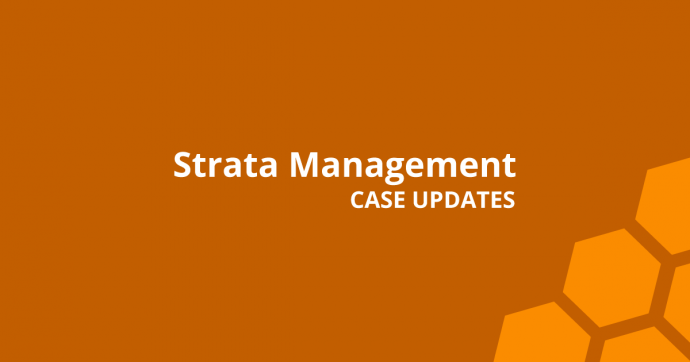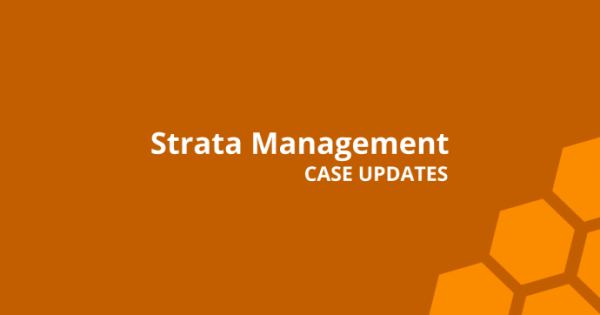
Dubon Berhad v Wisma Cosway Management Corporation (Federal Court) [2020] 1 LNS 503 (Federal Court)
Facts:
Dubon Berhad (“Company”) is a beneficial owner of a parcel in Wisma Cosway. The Company was wound up by an order of the Johor Bahru High Court dated 18.1.2000.
The liquidators in realising the Company’s assets, which included this parcel, required the developer (“Stephens Properties Sdn Bhd”) to execute instruments to transfer the parcel into the Company’s name. This was necessary for the liquidators to sell the parcel thereafter.
The Developer refused to execute the transfer unless the Company obtains a clearance letter from the Management Corporation of Wisma Cosway. There was an outstanding sum of RM183,070.26. The Outstanding Sum comprised RM4,028.00 in “administrative and application fees” owed to Developer and RM179,042.26 payable as outgoings and service charges owed to the MC.
The Liquidators denied the claim for the outstanding sum and took the position that both the Developer and the Management Corporation be treated like any other unsecured creditors of which payment will subject to availability of funds.
Any such payment had to adhere to the order of priority of creditors who had proven their debts, as well as the pari passu rule. (rank equal).
The Company filed a claim in the Strata Management Tribunal seeking an order that the Developer be directed to execute the Memorandum of Transfer and for the MC to issue clearance letter. The Management Corporation filed a counterclaim for the sum it was owed in the Strata Management Tribunal and followed with an application in the winding up court for leave to commence with the counterclaim in the Strata Management Tribunal under Section 226(3) of the then Companies Act 1965.
Issue: The sole issue to be determined is whether sum owed to the Developer and Management Corporation should rank equal with all unsecured creditors?
Decision:
The Federal Court referred to Section 292 Companies Act 1965 (now Section 527 Companies Act 2016).
“Section 292. Priorities.
(1) Subject to this Act, in a winding up there shall be paid in priority to all other unsecured debts –
(a) firstly, the costs and expenses of the winding up including the taxed costs of a petitioner payable under section 220, the remuneration of the liquidator and the costs of any audit carried out pursuant to section 281;
(b) secondly, all wages or salary (whether or not earned wholly or in part by way of commission) including any amount payable by way of allowance or reimbursement under any contract of employment or award or agreement regulating conditions of employment, of any employee not exceeding one thousand five hundred ringgit or such other amount as may be prescribed from time to time whether for time or piecework in respect of services rendered by him to the company within a period of four months before the commencement of the winding up;
(c) thirdly, all amounts due in respect of worker’s compensation under any written law relating to worker’s compensation accrued before the commencement of the winding up;
(d) fourthly, all remuneration payable to any employee in respect of vacation leave, or in the case of his death to any other person in his right, accrued in respect of any period before the commencement of the winding up;
(e) fifthly, all amounts due in respect of contributions payable during the twelve months next before the commencement of the winding up by the company as the employer of any person under any written law relating to employees superannuation or provident funds or under any scheme of superannuation or retirement benefit which is an approved scheme under the federal law relating to income tax; and
(f) sixthly, the amount of all federal tax assessed under any written law before the date of the commencement of the winding up or assessed at any time before the time fixed for the proving of debts has expired .
(2) The debts in each class specified in subsection (1) shall rank in the order specified but debts of the same class shall rank pari passu and shall be paid in full, unless the property of the company is insufficient to meet the debts, in which case the payment shall be reduced and the rate of reduction shall be in equal proportion.“
The question raised was simply whether Section 77 of the Strata Management Act 2013 dislodges the priority and elevates the payment of the arrears of sum owed to the Management Corporation to the status of a secured debt by reason of the word “guaranteed” in Section 77 Strata Management Act 2013?
The Federal Court analysed Section 77 and decided in the negative. It ruled that the word “guarantee” denotes a statutory obligation between the MC and a proprietor but does not disloge the statutory priority regime nor elevates the payment of charges to the status as a secured debt. Section 77 is reproduced below:
77 Recovery of sum as a debt due to Management Corporation or Subsidiary Management Corporation
(1) The payment of any amount lawfully incurred by the management corporation or the subsidiary management corporation in the course of the exercise of any of its powers or functions or carrying out of its duties or obligations shall by virtue of this section be guaranteed by the proprietors for the time being constituting the management corporation or the subsidiary management corporation.
The Court in construing Section 77 SMA 2013 in light of the general regime of insolvency law opined that the outstanding sum payable to the MC is NOT a secured debt. The guarantee has no effect on the rights of 3rd party creditors.
The rationale is borne out by Section 292 preserving the importance of the pari passu rule and the Management Corporation is only an unsecured creditor.
Takeaway:
A Joint Management Body / Management Corporation should actively recover arrears by filing the statutory form 11 or 20 against defaulters. Failing to pay thereafter, the JMB / MC is entitled to file a claim in the Strata Management Tribunal vide Form 1.
If faced with a wound up company parcel proprietor, the JMB / MC can file a proof of debt with the liquidators. Although the Management Corporation ranks equally with all other unsecured creditors, it’s power to recover charges and contribution of sinking fund is preserved allowing it to recover from the successor-in-title pursuant to Section 60(4) and 61(4) Strata Management Act 2013.

